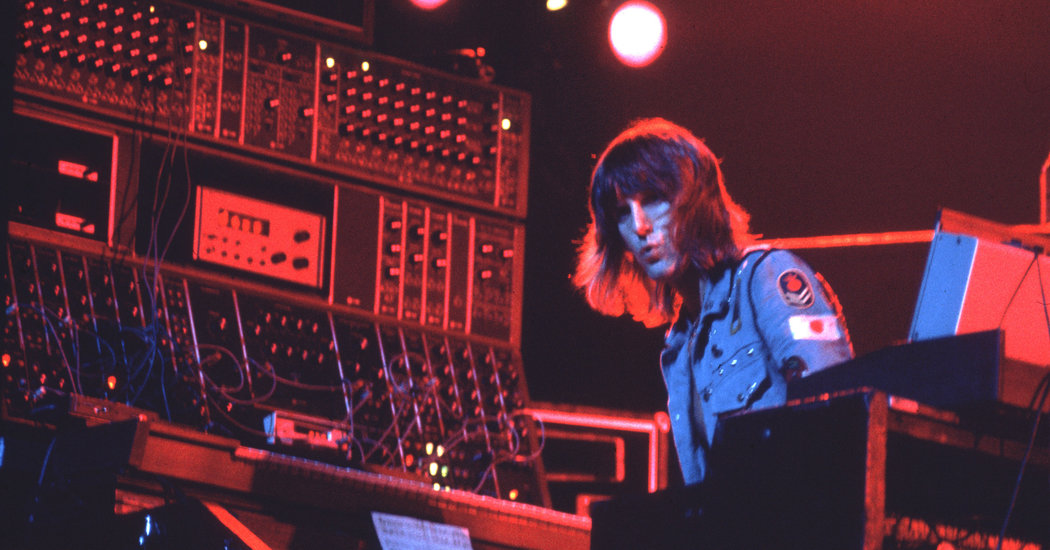The Greatest Time To Be A Music Producer
Much is being written about the shaky situation the music industry is in right now. Algorithms sucking the soul out of music discovery. Homogenization. Market oversaturation. Low artist royalty payouts from streaming services. Much has been said on the negatives in the industry, but little has been said about one important fact of life as a music producer today:
There has never been a better time to be a music producer than right now.
Most of us from the recent electronic music generation of the post-Trance and post-Dubstep explosions of the late 90s and late '00s can't remember, but back in the 60s, it was Modular or nothing.
To make one plucked sawtooth wave sound for a funky bass noise, you’d have to use multiple patch cables to route audio from a single oscillator unit to a filter unit, to an ADSR unit, and then to any additional effects to get the sound you wanted... and for more complex sounds, the numbers of modules increased geometrically super fast.
Now, a basic saw wave is the Initialize sound on most VSTs and hardware synthesizers.
And even in the 1970s and 1980s, when standalone analog and digital keyboard synthesizers became semi-affordable and mainstream, you had to be a reasonably good keyboardist to make anything decent with them, and you’d need a complex recording studio to record your live riffs in.
Nowadays you can hook up any synthesizer made after the implementation of MIDI to your computer, fire up your DAW, and open up a MIDI Out or vst interface for your synthesizer, set the MIDI channel assignments, and you can paint notes into your keyroll, and never need to touch the actual hardware (unless sculpting sounds by hand is your thing), and still get that full hardware sound.
In the old days, artists like The Beatles and Jean-Michael Jarre would have to route their monster setups into a complex mountain of recording equipment and spend hundreds or thousands of dollars to record it in a song.
Now, the musicians behind the BoJack Horseman theme can hook up a Jupiter-4 to their computer, and trigger sounds off it from ProTools, and they can do it in their living room. Yours truly has 4 synthesizers, all routed into FL Studio through a single audio interface. Takes 15 minutes to record a riff, and doesn't cost anything more than the mocha I picked up on the way back home from a climb.
40 years ago, such a thing would be the realm of the super rich; a distant dream for the average music producer.
And that's to say nothing of the wealth of tools musicians have now for propagating their music and advertising themselves. In the old days, massive record labels handled all the photography, videography, PR, and websites and things for musicians. And it all cost a fortune to run.
Now, an artist on even a meager budget can do all those things, or find friends or semi-pros that can assist in some of those areas, and create an end result just as slick and professional as the big leagues. A decent Wordpress or Squarespace website doesn't cost much to setup and run, and you can run your own merch store online. Social media also makes connecting with fans easier (or, did, before recent algorithm changes). And digital technology has made professional-grade photography and videography affordable to anyone with an iPhone 6 or later (or equivalent Android phones), and Youtube tutorials on filming techniques make quality video making better and easier than ever.
It's true royalties have shrunk in the last 18 years, but the industry is continually in flux, and every day the laws regarding royalty collection and artist representation changes, and things are beginning to bounce back for artists and producers. It is also true that the industry is heavily saturated, and sounds have been steadily homogenizing for the last 8 years, but thanks to the rapid spread of the internet, global markets have expanded rapidly - and niche markets to promote music in with it. So no matter what you write, there's an audience for it.
Things are tough (as they've always been for the majority of musicians), but in general, there's never been a better time for us electronic music artists. Even as we struggle against economic and socio-political forces over which we have little control, it does well to remember that we've come a long way for the better - and the future isn't set in stone.
Dawnchaser is a Pacific Northwest-based electronic music producer, mountaineer, documenter of all things adventure, mountain, and travel-related, and manager of Kulshan Recordings. If he’s not in the studio writing music about adventures, he’s out on one.

![IMG_20180816_181953[1].jpg](https://images.squarespace-cdn.com/content/v1/58ebb4c546c3c45cf0e7f2dc/1534474617327-E7ZNIQ777Z7DCMA28DMR/IMG_20180816_181953%5B1%5D.jpg)

![IMG_20180816_182236[1].jpg](https://images.squarespace-cdn.com/content/v1/58ebb4c546c3c45cf0e7f2dc/1534475241355-OQP9F52TY7PPHE37JNMD/IMG_20180816_182236%5B1%5D.jpg)
![IMG_20180816_182328[1].jpg](https://images.squarespace-cdn.com/content/v1/58ebb4c546c3c45cf0e7f2dc/1534475628667-51XZKN7IMQMKR8OKY9FW/IMG_20180816_182328%5B1%5D.jpg)